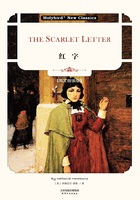Example (27)may be paraphrased as: It was somewhat unexpected that his prose wouldn’t rise as readily to the florid possibilities of North Oxford, or: It was not expected that his prose wouldn’t rise as readily to the florid possibilities of North Oxford.In both cases, an MV would is added, but in the first case somewhat is not omitted as there is a negation prefix, while in the second case somewhat is omitted as the negation prefix is replaced by clause negation.Likewise, Bellert (1977: 343)cautions people that some MAs have no corresponding negative adverbs that would function as sentential adverbs.The following example is quite unacceptable:
(28)*Impossibly, Mr.Smith has phoned.
Yet, Example (28)is acceptable if it is construed as: Impossible though it might seem, Mr.Smith has phoned.Thus, MAs, when converted into their adjectival forms, should be treated with care, and the attitudes involved may be interpreted in various ways depending on the contexts of use.
It could be found from the three methods belonging to the truth-condition correspondence approach that it is hard to give a one-to-one correspondence between modal forms and functions.In another word, modality is pluralistic and uncertain, and to fix the modal function of a certain device (be it an MV or MA), other modal devices may have to be used simultaneously.This section mentions that Greenbaum (1969: 108)uses adverb to supplement the modality of MA (e.g.somewhat unexpectedly), i.e.the pattern of adverb + MA, Perkins (1983: 89-93)believes tone groups could be a means of modality supplementing in adjusting the modality of MAs, i.e.the pattern of tone group + MA, and Bellert (1977:343)holds that clauses and modal adjectives can be equal to the negated modality of MAs, i.e.the pattern of modal adjective + clause = negated MA.It could then be concluded that the truth-condition correspondence approach to modality is controversial.
2.1.3 The approach of cognitive linguistics
Different from truth-condition linguists, some scholars study modality from cognition.This approach states that conceptualization forms the basis of the studies on modality.The force-dynamics theory advocated by some cognitive linguists proposes that modality results from an external or internal force that exerts impacts on people’s attitudes and eventually actions.
In fact, cognition and pragmatics can hardly be separated from each other.In the preface to their works of pragmatics Relevance: Communication and Cognition, Sperber & Wilson (1995: F39)state:
we present a new approach to the study of human communication.This approach is grounded in a general view of human cognition.Human cognitive processes, we argue, are geared to achieving the greatest possible cognitive effect for the smallest possible processing effort.To achieve this, individuals must focus their attention on what seems to them to be the most relevant information available.
However, cognitive linguists lay more emphasis on cognition than the other factors.Cognitive linguistics is concerned with the investigation of mental processes in the acquisition and use of knowledge and language.Bussmann (1996: 80)states:
In contrast with behaviorism that concentrates on observable behavior and stimulus-response processes, behavior in cognitive linguistics plays only a mediating role inasmuch it provides insights into cognitive processes.The object of investigation is research into cognitive or mental structure and organization by humans in thinking, storing information, comprehending, and producing language.
In actual studies of modality, it can be found that the force dynamics theory is adopted in studying modality from the perspective of cognition.
According to Langacker (1991: 269-271), the antecedents of modern English modals were main verbs (i.e.content verbs)in Old English.Will, for example, derives from a verb that meant “want”, while can originally indicated that its subject had the knowledge or mental ability to do something, and may showed that it had the necessary strength or physical ability.Langacker (ibid)holds that these original senses provide the basis for their subsequent evolution into modals, and that subjectification makes it possible for the originally actual-action verbs to be converted into presently potential-action auxiliary verbs (or auxiliaries).Subjectification means some facet of the profiled relationship being reoriented from the objective axis to the subjective axis, so that it is no longer anchored by an objective participant (the subject), but rather by a reference point construed more subjectively.Langacker (ibid)believes that the relationship that undergoes realignment from the objective to the subjective axis is the notion of potency directed toward the realization of the landmark process.In this way the locus of that potency is no longer the trajectory of the process, but rather the ground or another entity associated.For example:
(29)It must be finished by noon.
In Example (29), the speaker either imposes the obligation himself, or reports the obligation imposed by another source.Construed in this way, must is modally deontic.Consider another example:
(30)It must be lonely there at night.
In Example (30), the speaker simply assesses the likelihood of the designated process, and must is modally epistemic.According to Langacker (ibid), both the epistemic and deontic values of MVs represent subjectification.However, in many cases the distinction between root and epistemic MVs is not easy to maintain; there is confusion even over root MVs, and the same holds true for epistemic MVs.Take the following for example:
(31)Could you pass the carrots?
In Example (31), the MV could may refer to physical ability, willingness, or social obligation.It is not easy to find an identical answer if it is tested.To resolve the quandary, some linguists propose that the force dynamics theory can account for the use and functions of modal devices.Sweetser (1990)believes that MVs can be better explained by force-dynamic values, which are concerned with the sources of attitudes and the resulting impacts.The force-dynamic theory is supposed to apply to both root and epistemic modality.For example:
(32)You must come home by ten.(Mum said so.)
“The direct force (of Mom’s authority)compels you to come home by ten.”
(33)You must have been home last night.
“The available (direct)evidence compels me to the conclusion that you were home.”















